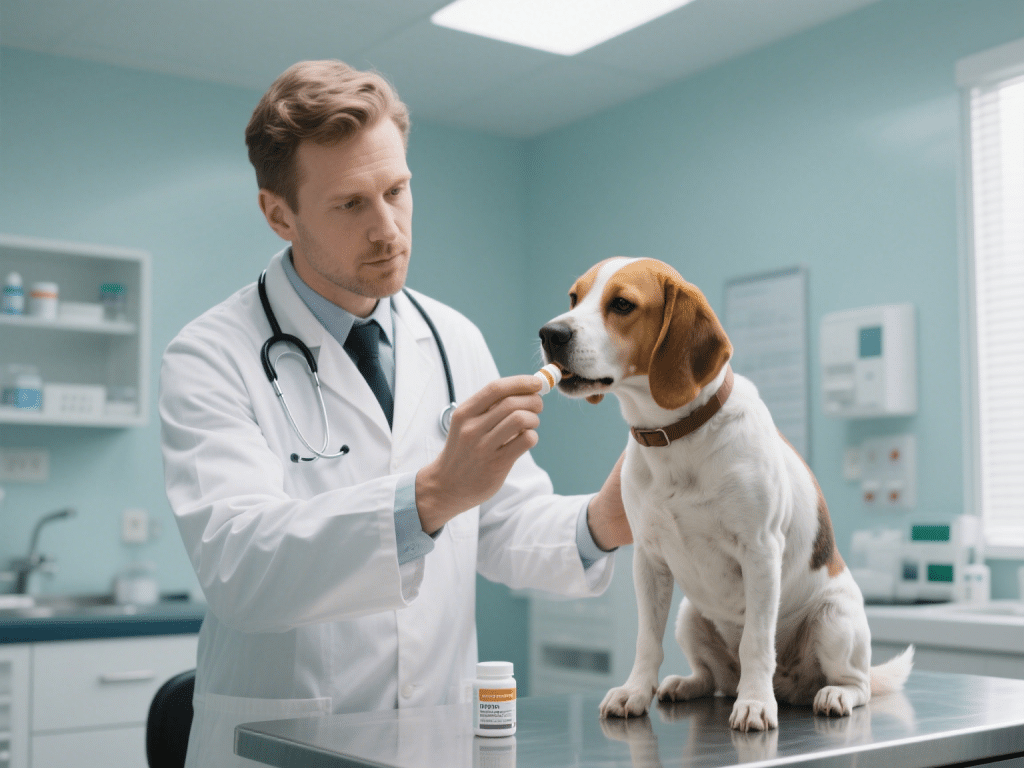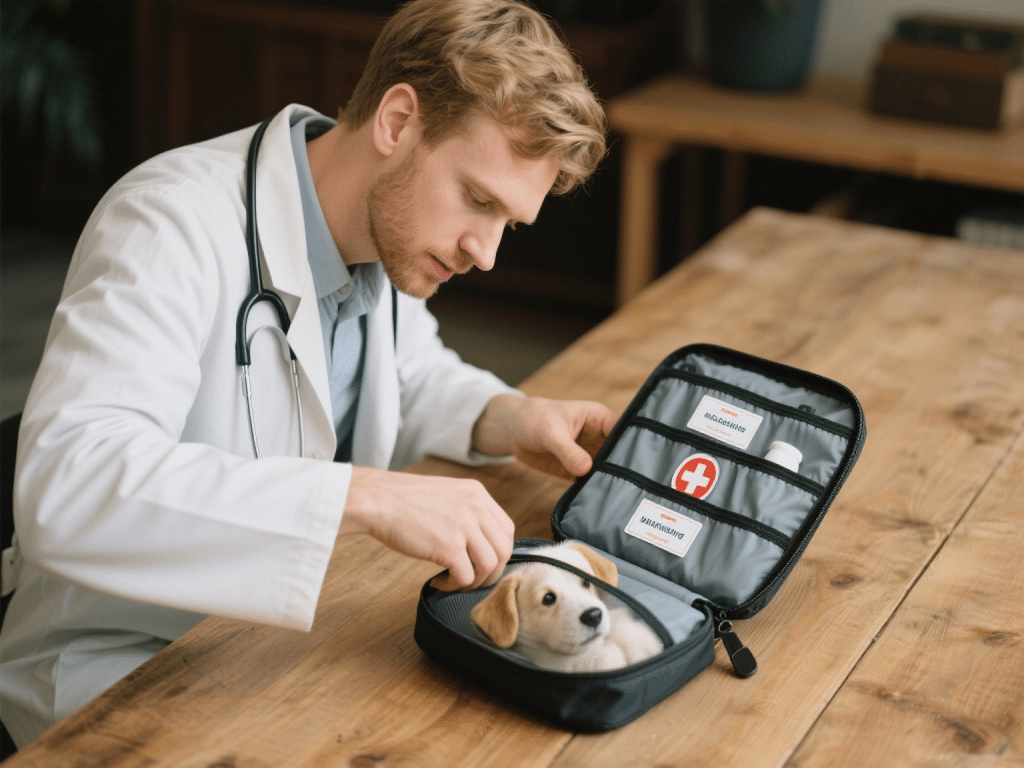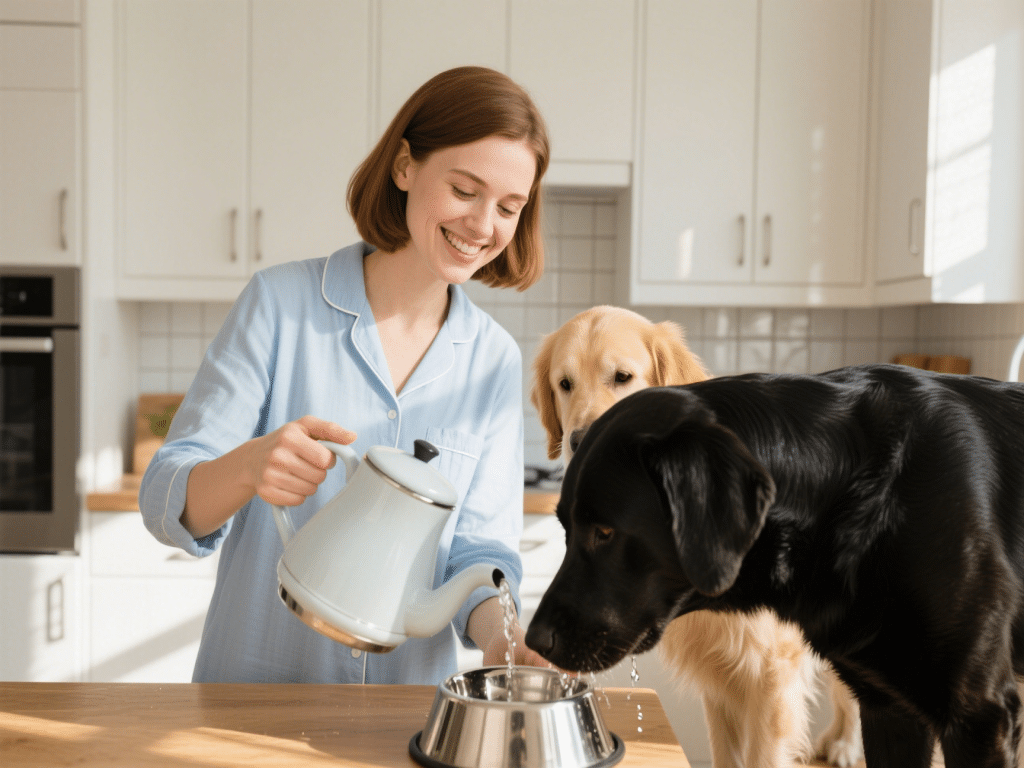Dog Probiotics 101: Why Gut Health Matters for Your Dog

Your dog’s gut houses a thriving microbial community that regulates digestion, immunity, and even mood. Just like humans, dogs benefit from probiotics—live beneficial bacteria that maintain gut balance. As a veterinary nutritionist, I’ve seen first-hand how optimizing gut flora can transform skin conditions, diarrhea, and chronic inflammation into stories of health and vibrancy.
1. The Role of Gut Microbiota
Inside your dog’s intestines live trillions of bacteria, yeast, and other microbes. A balanced microbiome:
Aids Digestion: Breaks down fibers and manufactures vitamins.
Supports Immunity: Fights harmful pathogens at the gut lining.
Regulates Inflammation: Reduces gastrointestinal upset and allergic responses.
Disruptions—due to antibiotics, stress, diet changes—can lead to dysbiosis, fueling diarrhea, skin issues, or chronic GI distress.
2. Benefits of Probiotic Supplementation
Improved Stool Quality: Healthy flora firm stools and reduce gas.
Enhanced Nutrient Absorption: Better nutrient uptake supports energy and coat health.
Immune Support: Balanced gut bacteria modulate immune responses, reducing infection risk.
Behavioral Effects: Emerging research links gut balance to reduced anxiety and better temperament.
3. Choosing the Right Probiotic Product
Strain Diversity: Look for multi-strain formulas containing Lactobacillus, Bifidobacterium, and Enterococcus species.
CFU Count: Aim for 1–5 billion CFU per serving for dogs under 30 lbs; larger dogs may need up to 10 billion.
Shelf Stability: Select shelf-stable or refrigerated products with guaranteed viability through the expiration date.
Form Factor: Options include powders, chews, or capsules—pick one your dog readily accepts.
4. How to Administer Probiotics
Introduce probiotics gradually:
Baseline: Start with half the recommended dose for the first 3 days.
Full Dose: Increase to full dose thereafter, mixed with food.
Consistency: Give probiotics daily, ideally at mealtime, for optimal colonization.
Monitor stool consistency and overall demeanor. Minor gas or mild stool softening may occur initially, then improve.
5. Special Situations for Probiotic Use
Post-Antibiotic Recovery: Antibiotics kill both bad and good bacteria; a probiotic course after antibiotics helps restore balance.
Chronic Diarrhea or IBD: Dogs with inflammatory bowel disease often show marked improvement in symptom severity.
Stressful Events: Travel, boarding, and kennel stays can perturb gut flora—probiotics ease GI upset during transitions.
6. Complementary Prebiotics and Diet
Probiotics thrive when paired with prebiotics—dietary fibers that feed beneficial bacteria. Many probiotic supplements include prebiotics or you can add pumpkin puree, oats, or chicory root to your dog’s meal. A balanced diet with ample fiber encourages thriving gut flora.
7. Monitoring and Expected Results
Give probiotics for at least 4–6 weeks to assess benefit. Signs of improvement include firmer stools, shinier coat, reduced gas, and fewer GI upsets. If no improvement after 8 weeks, consult your veterinarian: your dog may need a different strain or an underlying issue may exist.
8. Safety and Side Effects
Probiotics are generally very safe. In rare cases, dogs with severely compromised immune systems or gut integrity should use them under veterinary supervision. Always choose veterinary-formulated products with transparent ingredients.
Final Thoughts
Gut health is foundational to your dog’s vitality. By supporting a balanced microbiome with targeted probiotics and prebiotics, you empower better digestion, stronger immunity, and a happier pup. Start today with a high-quality, multi-strain probiotic and watch your dog thrive from the inside out—because a healthy gut makes for a healthy dog.









Comments on "Dog Probiotics 101: Why Gut Health Matters for Your Dog" :